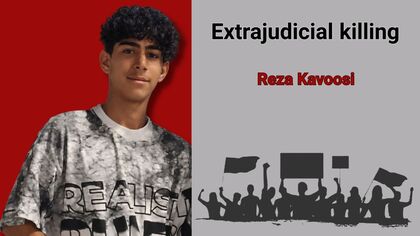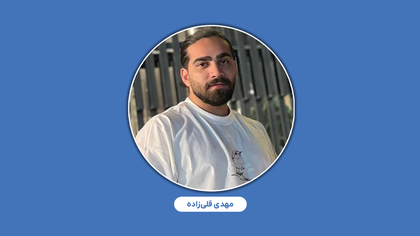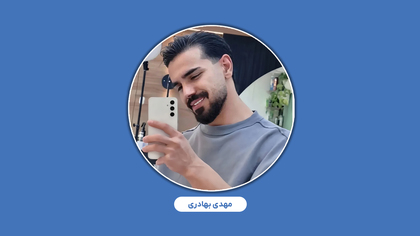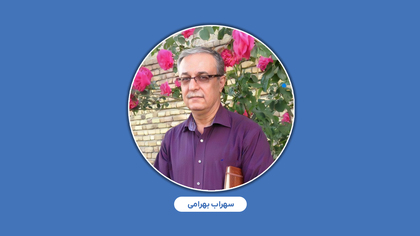Iran Dangerous Now, Imagine It Nuclear
13:23 - 10 November 2011

May we now dispense with the polite fiction that a nuclear-armed Iran could somehow be “contained”? After all, if Iranian officials were willing to plot the assassination of a prominent Saudi diplomat on U.S. soil (in partnership with Mexican gangsters, no less), what does that say about the nature of their regime? What does it say about their capacity for aggression and their appetite for risk? What does it say about their willingness to contravene the most basic norms of international behavior?
Lest we forget, this was hardly the first time that Tehran attempted to murder someone overseas. Thirty-one years ago, in July 1980, the Iranian government sponsored the assassination of Iranian exile Ali Akbar Tabatabaei, who was then living in Bethesda, Maryland. (Tabatabaei had worked at the Iranian embassy in Washington under the Shah. The gunman who killed him, an American convert to Islam named Dawud Salahuddin, subsequently escaped to Iran, where he has lived as a fugitive for the past three decades.)
For that matter, since the Islamist takeover in 1979, high-level Iranian officials “have been linked to the assassinations of at least 162 of the regime’s political opponents around the world,” according to the Iran Human Rights Documentation Center. Indeed, “at least twenty officials, agents or proxies of the Islamic Republic have been tried and convicted of involvement in the orchestrated killings of Iranian dissidents and others abroad.”
Several of those killings took place at a Berlin restaurant in September 1992, when Iranian-backed gunmen slaughtered three senior members of the Kurdish Democratic Party of Iran (Fattah Abdoli, Homayoun Ardalan, and Sadegh Sharafkandi), along with their translator (Nouri Dehkordi). This vicious crime was planned at the highest levels of the Iranian regime, with Supreme Leader Ali Khamenei and then-President Ali Akbar Hashemi Rafsanjani each offering support. It took place exactly six months to the day after Iranian agents executed a terrorist bombing at the Israeli embassy in Buenos Aires, which killed 29 people.
Roughly two years later, in July 1994, Tehran carried out an even deadlier bombing at the city’s AMIA Jewish community center. This attack, the worst terrorist atrocity in Argentine history, killed 85. Interpol has since issued arrest warrants for several past or present Iranian officials in connection with the AMIA massacre, including the current defense minister, Gen. Ahmad Vahidi.
With its failed scheme to murder the Saudi ambassador, Tehran graduated to a new level of violent audacity. “If the Justice Department’s information is correct,” writes Iran expert Reuel Marc Gerecht, “the conspiracy confirms a lethal fact about Iran’s regime: It is becoming more dangerous, not less, as it ages.”
What would it mean if such a regime went nuclear? Let’s assume, for the sake of argument, that a nuclear-armed Iran would never use its atomic weapons or give them to terrorists. Even under that optimistic scenario, Tehran’s acquisition of nukes would make the world an infinitely more dangerous place.
For one thing, it would surely spark a wave of proliferation throughout the Greater Middle East, with the likes of Turkey, Egypt, and Saudi Arabia - all Sunni-majority Muslim countries - going nuclear to counter the threat posed by Shiite Persian Iran. For another, it would gravely weaken the credibility of U.S. security guarantees. After all, Washington has repeatedly said that the Islamic Republic will not be permitted to get nukes. If Tehran demonstrated that these warnings were utterly hollow, rival governments and rogue regimes would conclude that America is a paper tiger.
Once Tehran obtained nuclear weapons, it would have the ultimate trump card, the ultimate protection against outside attack. Feeling secure behind their nuclear shield, the Iranians would almost certainly increase their support for global terrorism and anti-American dictatorships. They would no longer have to fear a U.S. or Israeli military strike. Much like nuclear-armed North Korea today, Iran would be able to flout international law with virtual impunity.
If America sought to curb Iranian misbehavior through economic sanctions, Tehran might well respond by flexing its muscles in the Strait of Hormuz. As political scientist Caitlin Talmadge explained in a 2008 analysis, “Iranian closure of the Strait of Hormuz tops the list of global energy security nightmares. Roughly 90 percent of all Persian Gulf oil leaves the region on tankers that must pass through this narrow waterway opposite the Iranian coast, and land pipelines do not provide sufficient alternative export routes. Extended closure of the strait would remove roughly a quarter of the world’s oil from the market, causing a supply shock of the type not seen since the glory days of OPEC.”
Think about that: The world’s leading state sponsor of terrorism has the ability to paralyze the global economy, and, if not stopped, it may soon have nuclear weapons.
As a nuclear-armed Iran steadily expanded its international terror network, the Western Hemisphere would likely witness a significant jump in terrorist activity. Tehran has established a strategic alliance with Venezuelan leader Hugo Chávez, and it has also developed warm relations with Chávez acolytes in Bolivia, Ecuador, and Nicaragua while pursuing new arrangements with Argentina as an additional beachhead in Latin America Three years ago, the U.S. Treasury Department accused the Venezuelan government of “employing and providing safe harbor to Hezbollah facilitators and fundraisers.”
More recently, in July 2011, Peru’s former military chief of staff, Gen. Francisco Contreras, told the Jerusalem Post that “Iranian organizations” are aiding and cooperating with other terrorist groups in South America. According to Israeli intelligence, the Islamic Republic has been getting uranium from both Venezuela and Bolivia.
Remember: Tehran has engaged in this provocative behavior without nuclear weapons. Imagine how much more aggressive the Iranian dictatorship might be after crossing the nuclear Rubicon. It is an ideologically driven theocracy intent on spreading a radical Islamist revolution across the globe. As the Saudi plot demonstrates, no amount of conciliatory Western diplomacy can change the fundamental nature of a regime that is defined by anti-Western hatred and religious fanaticism.
By Jaime Daremblum, Real Clear World
Lest we forget, this was hardly the first time that Tehran attempted to murder someone overseas. Thirty-one years ago, in July 1980, the Iranian government sponsored the assassination of Iranian exile Ali Akbar Tabatabaei, who was then living in Bethesda, Maryland. (Tabatabaei had worked at the Iranian embassy in Washington under the Shah. The gunman who killed him, an American convert to Islam named Dawud Salahuddin, subsequently escaped to Iran, where he has lived as a fugitive for the past three decades.)
For that matter, since the Islamist takeover in 1979, high-level Iranian officials “have been linked to the assassinations of at least 162 of the regime’s political opponents around the world,” according to the Iran Human Rights Documentation Center. Indeed, “at least twenty officials, agents or proxies of the Islamic Republic have been tried and convicted of involvement in the orchestrated killings of Iranian dissidents and others abroad.”
Several of those killings took place at a Berlin restaurant in September 1992, when Iranian-backed gunmen slaughtered three senior members of the Kurdish Democratic Party of Iran (Fattah Abdoli, Homayoun Ardalan, and Sadegh Sharafkandi), along with their translator (Nouri Dehkordi). This vicious crime was planned at the highest levels of the Iranian regime, with Supreme Leader Ali Khamenei and then-President Ali Akbar Hashemi Rafsanjani each offering support. It took place exactly six months to the day after Iranian agents executed a terrorist bombing at the Israeli embassy in Buenos Aires, which killed 29 people.
Roughly two years later, in July 1994, Tehran carried out an even deadlier bombing at the city’s AMIA Jewish community center. This attack, the worst terrorist atrocity in Argentine history, killed 85. Interpol has since issued arrest warrants for several past or present Iranian officials in connection with the AMIA massacre, including the current defense minister, Gen. Ahmad Vahidi.
With its failed scheme to murder the Saudi ambassador, Tehran graduated to a new level of violent audacity. “If the Justice Department’s information is correct,” writes Iran expert Reuel Marc Gerecht, “the conspiracy confirms a lethal fact about Iran’s regime: It is becoming more dangerous, not less, as it ages.”
What would it mean if such a regime went nuclear? Let’s assume, for the sake of argument, that a nuclear-armed Iran would never use its atomic weapons or give them to terrorists. Even under that optimistic scenario, Tehran’s acquisition of nukes would make the world an infinitely more dangerous place.
For one thing, it would surely spark a wave of proliferation throughout the Greater Middle East, with the likes of Turkey, Egypt, and Saudi Arabia - all Sunni-majority Muslim countries - going nuclear to counter the threat posed by Shiite Persian Iran. For another, it would gravely weaken the credibility of U.S. security guarantees. After all, Washington has repeatedly said that the Islamic Republic will not be permitted to get nukes. If Tehran demonstrated that these warnings were utterly hollow, rival governments and rogue regimes would conclude that America is a paper tiger.
Once Tehran obtained nuclear weapons, it would have the ultimate trump card, the ultimate protection against outside attack. Feeling secure behind their nuclear shield, the Iranians would almost certainly increase their support for global terrorism and anti-American dictatorships. They would no longer have to fear a U.S. or Israeli military strike. Much like nuclear-armed North Korea today, Iran would be able to flout international law with virtual impunity.
If America sought to curb Iranian misbehavior through economic sanctions, Tehran might well respond by flexing its muscles in the Strait of Hormuz. As political scientist Caitlin Talmadge explained in a 2008 analysis, “Iranian closure of the Strait of Hormuz tops the list of global energy security nightmares. Roughly 90 percent of all Persian Gulf oil leaves the region on tankers that must pass through this narrow waterway opposite the Iranian coast, and land pipelines do not provide sufficient alternative export routes. Extended closure of the strait would remove roughly a quarter of the world’s oil from the market, causing a supply shock of the type not seen since the glory days of OPEC.”
Think about that: The world’s leading state sponsor of terrorism has the ability to paralyze the global economy, and, if not stopped, it may soon have nuclear weapons.
As a nuclear-armed Iran steadily expanded its international terror network, the Western Hemisphere would likely witness a significant jump in terrorist activity. Tehran has established a strategic alliance with Venezuelan leader Hugo Chávez, and it has also developed warm relations with Chávez acolytes in Bolivia, Ecuador, and Nicaragua while pursuing new arrangements with Argentina as an additional beachhead in Latin America Three years ago, the U.S. Treasury Department accused the Venezuelan government of “employing and providing safe harbor to Hezbollah facilitators and fundraisers.”
More recently, in July 2011, Peru’s former military chief of staff, Gen. Francisco Contreras, told the Jerusalem Post that “Iranian organizations” are aiding and cooperating with other terrorist groups in South America. According to Israeli intelligence, the Islamic Republic has been getting uranium from both Venezuela and Bolivia.
Remember: Tehran has engaged in this provocative behavior without nuclear weapons. Imagine how much more aggressive the Iranian dictatorship might be after crossing the nuclear Rubicon. It is an ideologically driven theocracy intent on spreading a radical Islamist revolution across the globe. As the Saudi plot demonstrates, no amount of conciliatory Western diplomacy can change the fundamental nature of a regime that is defined by anti-Western hatred and religious fanaticism.
By Jaime Daremblum, Real Clear World



